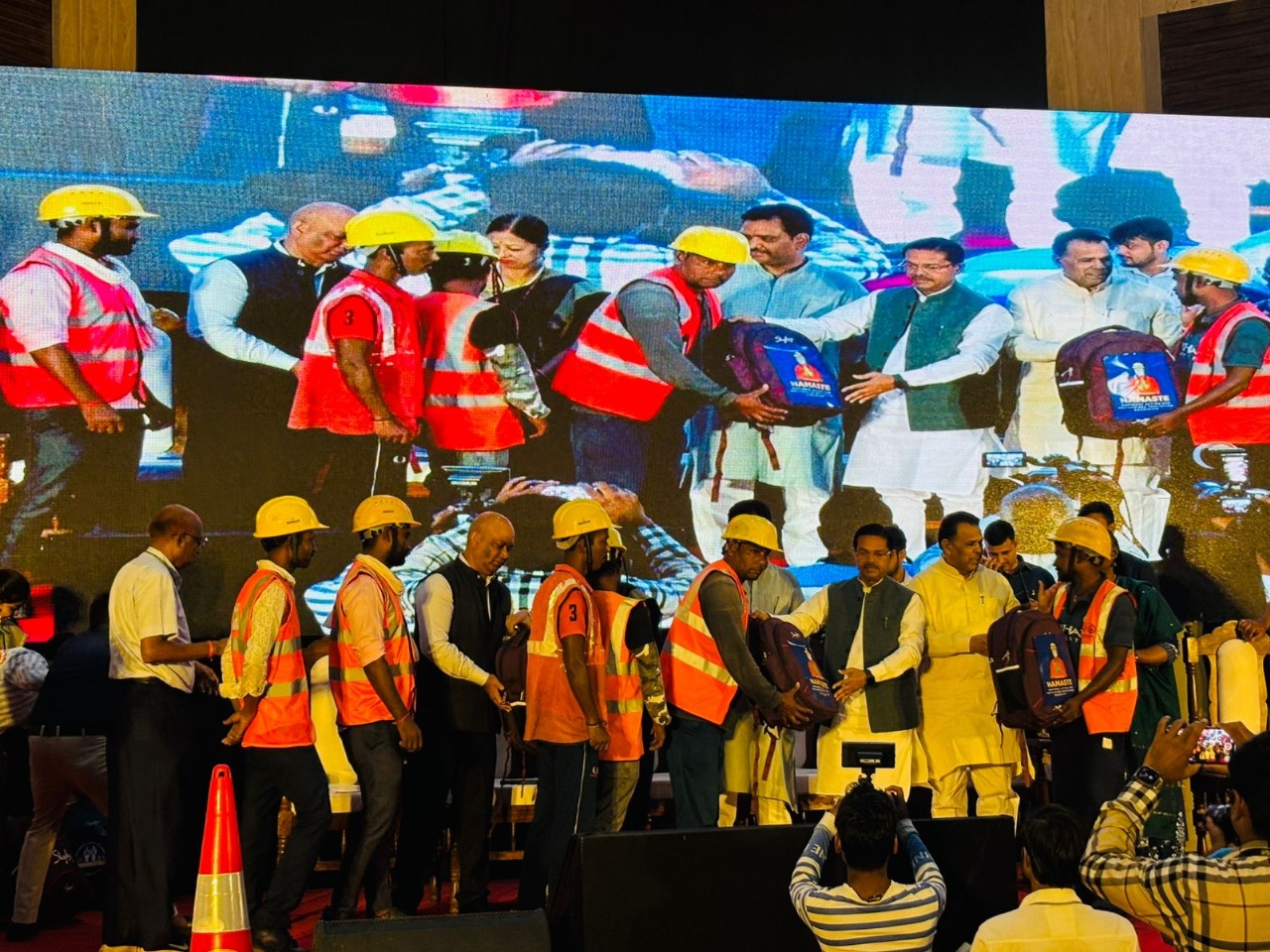NAMASTE Day Celebrated with Launch of Helpline and Support for Sanitation Workers
In his address, Shri Verma lauded the visionary leadership of Prime Minister Shri Narendra Modi, who, he said, has brought national attention and dignity to communities long neglected.

- Country:
- India
On the occasion of National Action for Mechanized Sanitation Ecosystem (NAMASTE) Day, the Government of India reaffirmed its commitment to ensuring the dignity, safety, and welfare of sanitation workers across the country. In a special programme held in Lucknow, Union Minister of State for Social Justice and Empowerment, Shri B.L. Verma, inaugurated a dedicated national helpline (14473) for waste pickers and distributed Personal Protective Equipment (PPE) kits and Ayushman Bharat health cards to Sewer and Septic Tank Workers (SSWs) and waste pickers.
The event marked a significant milestone in the NAMASTE Scheme, which aims to mechanize sanitation work, end manual scavenging, and provide holistic support to the most marginalized sections of India's urban workforce.
Honouring the Unsung Heroes of Cleanliness
In his address, Shri Verma lauded the visionary leadership of Prime Minister Shri Narendra Modi, who, he said, has brought national attention and dignity to communities long neglected. He recalled how in 2014, the Swachh Bharat Abhiyan, launched on the birth anniversary of Mahatma Gandhi, had transformed India's cleanliness landscape and shifted public perception about sanitation.
“Cleanliness is not just a government responsibility; it is a collective societal duty,” Shri Verma declared. He emphasized that the NAMASTE Scheme is more than a policy—it is a “resolution” to ensure safety, dignity, and social security for sanitation workers through structured interventions and technology adoption.
Key Highlights and Achievements of NAMASTE Scheme
Shri Verma provided an overview of the progress made under the NAMASTE Yojana, launched by the Ministry of Social Justice and Empowerment to eliminate hazardous manual sanitation work:
-
85,067 sewer and septic tank workers profiled nationwide
-
45,871 SSWs equipped with PPE kits
-
40,166 workers issued Ayushman Bharat health cards, providing coverage of up to ₹5 lakh per family per year
-
In Lucknow alone:
-
933 SSWs and 1,563 waste pickers profiled
-
Symbolic distribution of PPE kits to 20 SSWs and 20 waste pickers
-
Ayushman cards provided to 24 sanitation workers
-
These interventions not only protect lives but also empower workers by linking them to healthcare, insurance, social security, and training programs.
Innovative AR/VR Training Module Launched
In a significant leap forward, Shri Verma launched a new Augmented Reality/Virtual Reality (AR/VR) training module to train sanitation workers in occupational safety practices. This immersive training experience is expected to revolutionize skill development and risk mitigation for frontline workers.
The event also featured a fashion show that creatively demonstrated the utility and importance of PPE kits, making sanitation safety both visible and relatable for the public.
Emergency Response and Empowerment Tools Distributed
Safety equipment for Emergency Response Sanitation Units (ERSUs) was also distributed to enhance emergency preparedness and protect frontline responders during hazardous sanitation incidents. These mobile units are designed to respond to accidents and emergencies in real-time, equipped with tools for safe and rapid intervention.
Dignity for the Marginalised: A Core National Commitment
The event underscored the government’s unwavering dedication to “Dignity for the Marginalised”, especially those historically overlooked in the country’s development narrative. This includes not only providing material support but also social recognition, legal safeguards, and opportunities for economic upliftment.
Referring to the broader “Viksit Bharat by 2047” vision, Shri Verma highlighted that the Government’s efforts to integrate sanitation workers into mainstream development is pivotal to building a truly inclusive, just, and aspirational India.
The Minister also cited the example of the Government’s "Special Cleanliness Drive", where ministries cleaned junk from offices and raised over ₹61 crore through auctions—symbolizing both resourcefulness and respect for the ethos of cleanliness.
Dignitaries and Global Participation
The programme was attended by an array of dignitaries and officials, including:
-
Shri Arun Asim, Minister of Social Welfare, Government of Uttar Pradesh
-
Shri Narendra Kashyap, State Minister of Backward Caste Development and PwD Empowerment
-
Ms. Yogita Swaroop, Senior Financial Advisor, Union Ministry of Social Justice and Empowerment
-
Ms. Angela Lusigi, India Representative, United Nations Development Programme (UNDP)
-
Senior officers from the Centre and State Governments
Their presence reflected broad-based national and international support for the NAMASTE initiative, which is fast becoming a model for inclusive urban development and social justice.
As the event concluded, it left behind a clear and powerful message: India is committed to ensuring that no one is left behind, especially those who have worked silently and often invisibly to keep our cities clean. The NAMASTE Day celebration was more than an event—it was a symbol of transformation, dignity, and empowerment.










